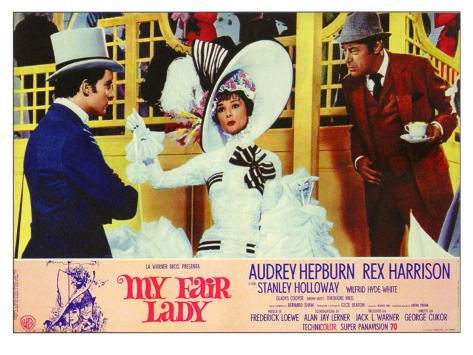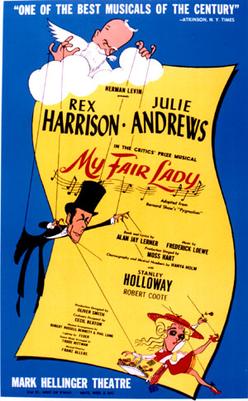The English Words of the Day/Las palabras en inglés del día: F A R E and F A I R
Fare (sustantivo, verbo)
Fair (adjetivo, adverbio, sustantivo
Actualmente estamos buscando un corrector de las frases en español. Si estás interesado, por favor envíeme un PM. Mientras tanto, por favor, ayudarnos unos a otros como usted es capaz.
Como tenemos muchos nativos ingleses, por favor siéntase libre para ayudarse mutuamente.
Las directrices:
Una frase debe tener al menos 4 palabras.
Limite tus respuestas a 4 frases o menos.
No copie directamente tu respuesta del traductor.
No utilice letras de canciones o frases que no son fácilmente traducidos al inglés.
No copie y pegue de un libro o de otra fuente directamente.
Utilice tus propias palabras, por favor.
A un miembro se le permite varios respuestas.
Incluya el inglés, así como el español, en tu respuesta.
The English words of the day are:
We are currently looking for a corrector for the Spanish sentences. If you are interested, please send me a PM. In the meantime, please help each other as you are able. As we have many English native speakers please feel free to help one another. Guidelines:
A sentence must have at least 4 words.
Limit your answer to 4 sentences or less.
Do not copy your answer directly from the translator.
Do not use song lyrics or phrases that are not easily translated to English.
Do not directly copy and paste from a book or other source.
Use your own words, please.
A member is allowed multiple answers.
Include the English, as well as the Spanish, in your answer.
Examples:
Fares please!
¡Billetes por favor!
How did you fare?
¿Cómo te fue?
I spend a fair amount of time in France.
Paso bastante tiempo en Francia.
We had more than our fair share of rain.
Nos tocó más lluvia de lo que era de esperar.
Please thank anyone who helps you.
Vote for every answer and for me. ![]()
11 Answers
The taxi company advertises a fair fare.
La compañía de taxis anuncia una tarifa justa.

Life isn't fair.
La vida no es justa.

Today I went to the fair by bus.The fare for the ticket was $2. Hoy fui a la feria en autobús.La tarifa para el billete fue de dos dolares.
Todo mi familia cuando están de joven que tienen el pelo rubio .
Pero durante la pubertad cambia a pelo negro .
All my family when they are young they have fair hair.
But during puberty changes to black hair

I never eat the fare at the fair for fear of what's in it.
Nunca como la comida a la feria porque tengo miedo de lo que contenga...


Now I can save the bus fare because at my age it is not obligatory to pay. This way I am going to become rich.
Ahora puedo ahorrar el precio de pasaje del autobús porque en mi edad no es obligatorio a pagar. Así voy a convertirme en rica.
My Fair Lady was a very popular musical version of Pygmalion.

My Fair Lady fue una versión musical muy popular de Pigmalión.
 Julie Andrews starred in the hit Broadway stage adaptation.
Julie Andrews starred in the hit Broadway stage adaptation.
 Julie Andrews protagonizó la exitosa adaptación teatral de Broadway.
Julie Andrews protagonizó la exitosa adaptación teatral de Broadway.
It was a fair day, so I decided to go to the fair, but the fare the taxi charged wasn’t fair, so I had little money left to buy decent fare, and ended up eating something that didn’t fare well with me, and I ended up saying farewell to it in a trash can.
Hacía tiempo bastante bien El día estaba lindo; por eso decidí ir a la feria, pero el precio del pasaje que el taxi cobró no era justo, así que me quedó poco dinero para comprar comida buena, y terminé comiendo algo que no me sentó bien, y acabé despidiéndolo en el cubo de basura.

¿Me pregunto si los taxistas son justo y honesto cuando viajan con una tarifa?
I wonder if taxi drivers are fair and honest when they travel with a fare?

¿Trescientos dólares por un viajecito de Los Angeles a San Diego? ¡Esa tarifa no está justa!
Three hundred dollars for a little trip from Los Angeles to San Diego? That fare isn't fair!

To those who question my use of "estar" with adjectives such as "justa"
I offer this from another website where a fellow Spanish teacher is giving the explanation.
I have placed in bold those references pertinent to this discussion.
"Ser y estar tienen usos espécificos según las reglas de gramática. Por ejemplo:
Tus zapatos son bonitos. = Your shoes are pretty. Tus zapatos están bonitos. = Your shoes LOOK pretty.
When dealing with adjectives, SER indicates that the adjective is an inherent characteristic of something or someone, and ESTAR indicates the quality to be a variable condition.
El capítulo es largo. = The chapter is long. El capítulo está largo. = The chapter SEEMS long. Basically, when estar is used where ser is normally used (and this goes for adjectives only,) the word IS or ARE changes to LOOK(S) or SEEM(S).
Likewise, some adjectives normally take ESTAR because you are talking about a temporary condition. By using SER, you make the temporary condition a permanent or general characteristic (or at least one less likely to change.)
Examples: Yo estoy feliz. = I am happy (because of a certain reason.) Yo soy feliz. = I am a happy person (in general.) El cuarto está ordenado. = The room is orderly (organized.) Yo soy ordenado. (I am an orderly [organized] person.)
There are many rules that govern the use of SER and ESTAR. This discussion here is limited to their use with ADJECTIVES.
Espero que esto te ayude."
Taken from "forum.wordreference.com/showthread.php?t=896053"












